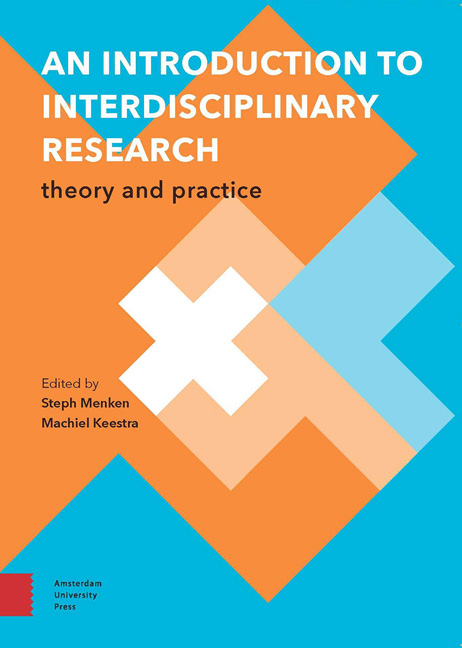Book contents
- Frontmatter
- Contents
- Acknowledgements
- Preface
- Part 1 The Handbook - ‘The What’
- 1 Introduction
- 2 What is Science? A Brief Philosophy of Science
- 3 The Disciplines
- 4 Interdisciplinarity
- 5 Complexity: The Main Driving Force Behind Interdisciplinarity
- 6 Interdisciplinary Integration
- Part 2 The Manual - ‘The How’
- 7 The Interdisciplinary Research Process
- 8 The Problem
- 9 Theoretical Framework and Research Question
- 10 How to Collect and Analyze your Data
- 11 Discussion and Conclusion(s)
- Part 3 Interdisciplinary Research in Practice
- 12 Interdisciplinary Research Example: Fogponics
- 13 Interdisciplinary Careers
- Further Reading
- References
- Colophon
2 - What is Science? A Brief Philosophy of Science
- Frontmatter
- Contents
- Acknowledgements
- Preface
- Part 1 The Handbook - ‘The What’
- 1 Introduction
- 2 What is Science? A Brief Philosophy of Science
- 3 The Disciplines
- 4 Interdisciplinarity
- 5 Complexity: The Main Driving Force Behind Interdisciplinarity
- 6 Interdisciplinary Integration
- Part 2 The Manual - ‘The How’
- 7 The Interdisciplinary Research Process
- 8 The Problem
- 9 Theoretical Framework and Research Question
- 10 How to Collect and Analyze your Data
- 11 Discussion and Conclusion(s)
- Part 3 Interdisciplinary Research in Practice
- 12 Interdisciplinary Research Example: Fogponics
- 13 Interdisciplinary Careers
- Further Reading
- References
- Colophon
Summary
What is science?
In the previous chapter we quoted philosopher of science Karl Popper, who contended that solving a problem often requires the integration of insights that pertain to different subject matters or disciplines. Popper observes a certain tension between the way that scientific disciplines are organized and how problems present themselves. Indeed, interdisciplinary research is a way to overcome this tension and to organize scientific research in such a way that it is not impeded by the organizational structure of the sciences itself. Since it is important to understand both the value and the limitations of this organizational structure, we need to briefly reflect on what science is and does. In other words: let us reflect on some basic ingredients of science, the way philosophers of science do. There are many ingredients that appear to be familiar enough, though perhaps not easy to understand, such as theory, concept, fact, hypothesis, explanation, inference, induction, deduction, and so on. Given the limitations of this handbook, we will only pay attention to a few of these and recommend you to look elsewhere for a more comprehensive introduction to the philosophy of science.
Scientists work hard to understand the world or reality, in much the same way as lay persons do. In fact, scientists cannot help but do this by building on the same pillars as we all have to. They have to rely upon sense perception in order to draw upon information about the world available and they have to use reasoning in order to draw the right conclusions about this information and to avoid mistakes. Nonetheless, if one reads scientific texts, it immediately becomes apparent that there are striking differences between scientific and lay efforts to reach an understanding of reality. Scientists do not usually rely on just their senses as lay persons do, but rather use a variety of instruments to perceive more, smaller, larger, and different objects than lay persons do: microscopes, structured interviews, telescopes, fMRI scanners, validated questionnaires, participatory observations, archive research, and so on. Similarly, their reasoning and arguments are often quite different from those of lay persons, as they work with rather specific concepts, propositions, formulas, figures, tables, and schemes and tend to strictly follow the laws of logic in connecting those. Put differently, they work with large and complex collections of symbols, all arranged in a quite particular structure.
- Type
- Chapter
- Information
- An Introduction to Interdisciplinary ResearchTheory and Practice, pp. 17 - 24Publisher: Amsterdam University PressPrint publication year: 2016



